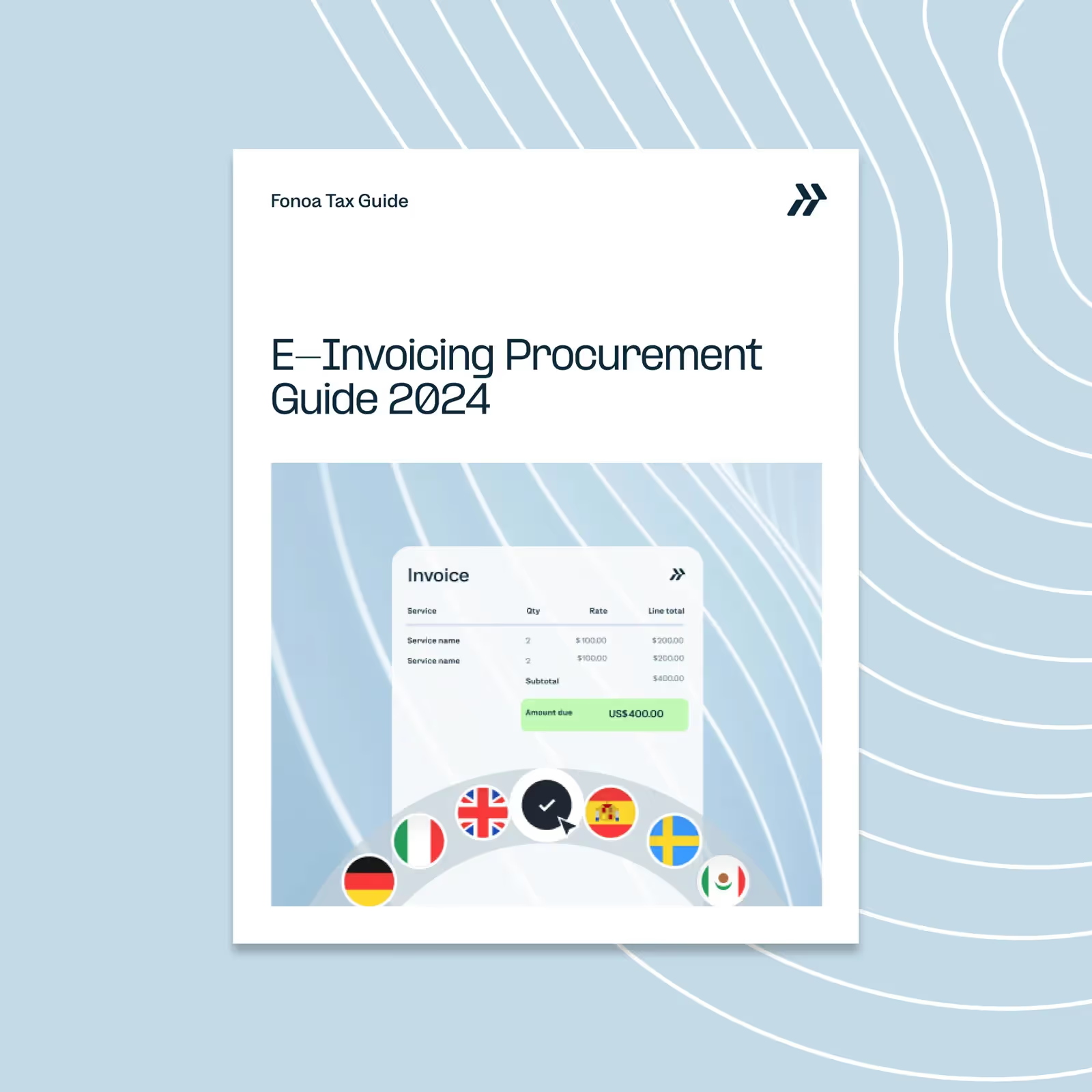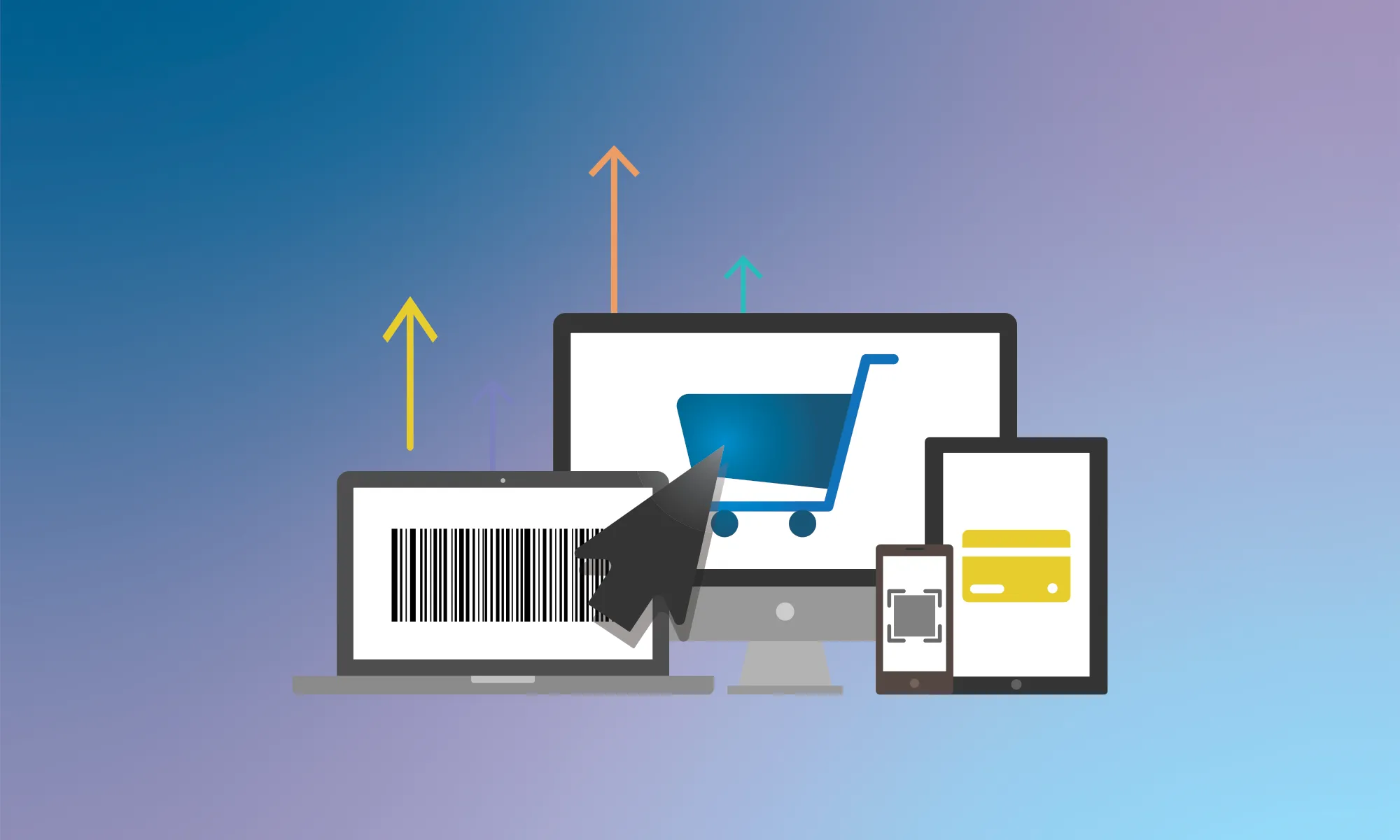For more than 15 years, Brazil has operated one of the world's most mature e-invoicing ecosystems. But 2026 marks a turning point: the country is overhauling its entire indirect tax system.
The ongoing reform introduces a dual VAT structure designed to replace multiple existing taxes with a simplified, destination-based model. For businesses operating in Brazil or supplying Brazilian customers, the impact will be significant. Both tax and technology teams will need to adapt systems, workflows, and schemas to the new environment.
At Fonoa, we’ve seen hundreds of businesses operating in Brazil face unique challenges, and we've helped them solve them. The complexity of the upcoming transition isn't theoretical,but you aren't alone in navigating it.
The core challenge: Managing five taxes today, three tomorrow, and both during a seven-year transition
The reform replaces Brazil's current five indirect taxes with three new ones, but not all at once. Constitutional Amendment 132/2023 and Complementary Law 214/2025 lay out a seven-year transition where old and new taxes overlap.
Brazil’s current indirect taxes
Today, Brazil applies five primary indirect taxes:
- ICMS is a state-level tax on goods, interstate and intermunicipal transport, and communication services.
- ISS is a municipal tax on services, covering everything from professional services to digital services, local transportation, entertainment, hospitality, and financial services.
- At the federal level, IPI taxes industrialized products, while PIS and COFINS are federal social contributions on gross revenue.
Brazil’s new indirect taxes coming
These will gradually be replaced by:
- CBS: a federal VAT replacing PIS, COFINS, and IPI
- IBS: a combined state and municipal VAT replacing ICMS and ISS
- IS: a new federal excise tax on harmful goods
The reform also shifts Brazil to destination-based taxation, taxing goods and services where they are consumed rather than where they originate.
The 7-year rollout plan
Here's where it gets particularly complicated. The transition unfolds in phases:
- 2026: Pilot rates introduced (CBS at 0.9%, IBS at 0.1%)
- 2027: CBS will fully replace PIS and COFINS while IBS remains at 0.1%
- 2029-2032: IBS gradually increases each year while ICMS and ISS decrease proportionally
- 2033: The full transition completes; ICMS and ISS are abolished.
This means businesses must calculate, report, and remit both old and new taxes simultaneously for seven years. Systems need to handle parallel tax logic, and any errors in applying the phased rates could trigger compliance issues or overpayment.
Which businesses this affects and what documents you'll need to manage
E-invoicing is generally mandatory for all businesses selling goods or providing services in Brazil. Exemptions exist but are narrow and depend on state and municipal rules.
Brazil's e-invoicing framework covers virtually all transaction types: B2B, B2C, and B2G operations, whether domestic, interstate, or cross-border. It applies to both imports and exports and encompasses the full spectrum of goods and services.
The document types you'll encounter
Brazil has one of the widest sets of digital fiscal documents globally, which includes:
- NF-e: Used for goods transactions; authorized by SEFAZ (state tax authority)
- NFC-e: Used for B2C retail sales of goods at the point of sale; authorized by SEFAZ
- NFS-e: Used for service transactions authorized by municipal governments
- CF-e: Used for consumer sales in states that require certified fiscal hardware; issued via certified device and authorized by SEFAZ
- CT-e: Used for freight and cargo transportation services
- MDF-e: Used to consolidate multiple NF-e or CT-e documents during transport
- NFCom: Used for telecommunications and communication services (mobile, internet, cable TV)
The complexity: Businesses selling both goods and services must manage multiple document types, each with its own schema, authorization process, and compliance requirements.
What you need to get started
To issue NF-e, NFC-e, and NFS-e, businesses typically need:
- CNPJ (national business ID)
- State registration for ICMS taxpayers (required for NF-e/NFC-e)
- Municipal registration for ISS taxpayers (required for NFS-e)
- ICP-Brasil digital certificate (A1/A3/A4, depending on document type)
While NF-e and NFC-e follow standardized national rules, NFS-e is issued through municipality-specific systems.
Brazil's clearance model means rejected invoices halt your business operations
Brazil uses a clearance model for e-invoicing. This requires real-time or near real-time validation of documents by the competent tax authority before they become legally valid.
The NF-e authorization process
Every NF-e must be validated and authorized by SEFAZ before it becomes legally valid. Here's how it works:
- You submit the NF-e XML to SEFAZ
- SEFAZ validates the document against all business rules
- If approved, SEFAZ issues an Authorization Code (Autorização de Uso)
- Only then can the NF-e be used to document the transaction and allow goods to circulate
Alongside the XML, you generate the DANFE, a simplified, human-readable representation of the NF-e that accompanies goods during transport. The DANFE contains the NF-e access key and a barcode or QR code that allows authorities or trading partners to verify the invoice directly in SEFAZ's system.
The potential risk: A rejected invoice stops your business operations. If your XML doesn't validate because of a schema error, missing field, or incorrect tax calculation, you cannot legally complete the sale or ship goods until the issue is resolved. There's no "submit now, fix later" option.
The NFS-e fragmentation problem: Why service invoicing is especially difficult
Brazil's service invoicing landscape remains split between two parallel models, and this creates operational headaches.
Two systems running in parallel
Local municipal systems: Many municipalities operate their own NFS-e issuing systems, each with its own portal, XML schema, validation rules, service code lists, and integration requirements. Businesses issuing invoices in these cities must follow the local system's technical specifications and authorization process, which can differ significantly from one municipality to another.
National NFS-e model: Municipalities that have joined this model use a standardized federal layout and web service maintained by the Federal Government. The XML structure, service codes, and validation rules are harmonized nationally, and invoices can be issued through a uniform interface regardless of the municipality.
Why this matters for your business
While adoption of the national model is increasing, especially among small and medium-sized municipalities, large cities have opted to retain their own systems.
São Paulo recently confirmed that it will not migrate to the National NFS-e model in 2026. The city will maintain its own NFS-e issuing system.
The problem: If you provide services in multiple municipalities, you may need to maintain integrations with dozens of different systems, each with its own quirks and update schedules. This means managing hybrid requirements across both local and national platforms.
Despite these differences, all municipalities (whether using their own system or the national model) are required to transmit invoice data to the NFS-e National Data Repository (ADN). This supports greater standardization over time, but it doesn't solve the immediate integration challenge.
Schema updates are happening now, and you need to test before go-live
The introduction of IBS and CBS requires significant updates to Brazil's e-invoicing standards. The NF-e schema and the National NFS-e model have been updated to include the new tax fields.
Municipalities that manage their own systems have begun adapting their layouts to the reform. São Paulo has released new versions of its NFS-e WebService Manual and XSD schemas incorporating IBS and CBS fields. The city has also activated a test environment that allows taxpayers to validate XML structures before go-live.
What you need to do
Monitor changes across:
- State authorities (for NF-e/NFC-e updates)
- Individual municipalities (for NFS-e updates)
- Each jurisdiction's test environment availability
The challenge: Updates are frequent and not always synchronized. Each jurisdiction may roll out schema updates on different timelines. Missing an update can result in rejected invoices, which disrupts transactions and creates compliance risk.
Cancellation, correction, and replacement rules you need to understand
Beyond issuance, you must navigate complex rules for fixing or canceling invoices after they've been authorized. These rules vary by document type and jurisdiction.
Errors in invoices cannot simply be deleted. Instead, they must be:
- Canceled through official procedures
- Corrected using specific correction methods
- Replaced with new documents following prescribed workflows
Each action requires its own authorization from the tax authority and must maintain a clear audit trail.
The pitfall: Getting corrections wrong can trigger audits or penalties. Understanding which correction method to use in which scenario, and ensuring your systems handle these processes correctly, is essential but often overlooked until an error occurs.
What's still uncertain (and why you need to stay flexible)
Supplementary legislation will define the precise final rates for IBS and CBS, which are expected to converge toward the combined 26.5% cap set by the reform. However, as of this article’s publication, this legislation is still pending.
What this means: You must prepare without complete information. While the framework and timeline are set, details around rate structures, exemptions, and specific compliance requirements may still shift. Systems may need further adjustments as regulations are finalized.
The bottom line: What businesses need to prepare for now
The 2026 reform is not just a tax change. It's a complete restructuring of how businesses issue, validate, and manage fiscal documents in one of the world's most digitally sophisticated tax environments.
Starting preparation now is essential.
Fonoa works with global businesses and customers operating in Brazil to tackle these exact challenges. Our team understands the complexities of Brazil's e-invoicing landscape and can help you navigate the transition to IBS and CBS.
Whether you're managing NF-e for goods, navigating the fragmented NFS-e municipal systems, or preparing your tech stack for the seven-year transition period, we provide the solutions and expertise you need to stay compliant.
Contact our team to get a personalized assessment of what you need to do ahead of Brazil's changes to be ready for 2026.

















